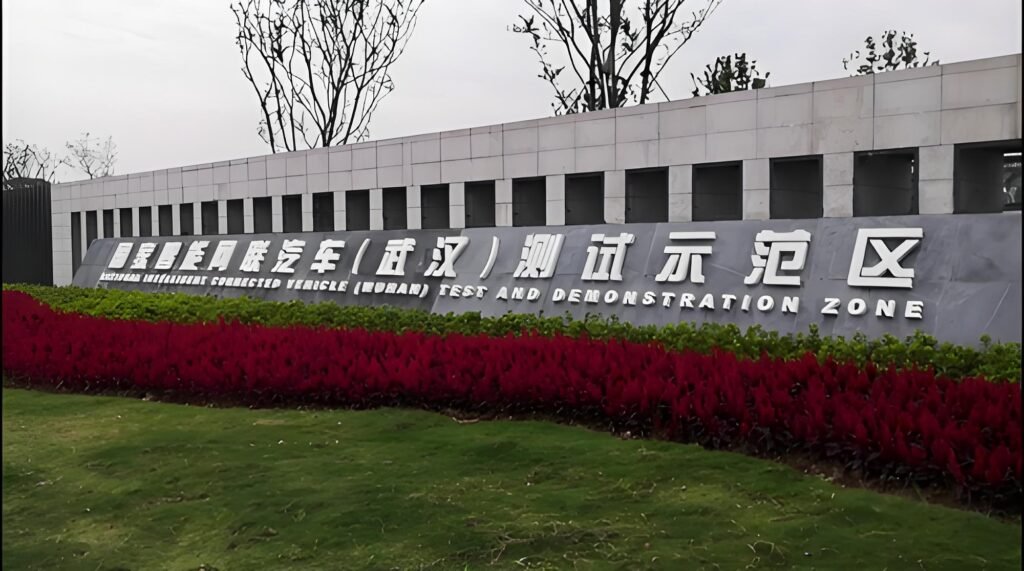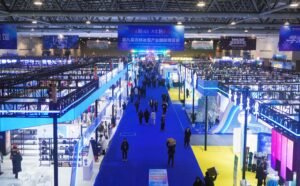The National Intelligent Connected Vehicle Test Zone (国家智能网联汽车武汉测试示范区) is one of China’s pioneering centers for the development and testing of autonomous and internet-connected vehicle technologies. Officially launched in 2019, the center pursues two main objectives: leveraging Wuhan’s position as one of China’s most important automotive hubs to transform the traditional automobile industry into smart mobility, and enabling the safe testing of new technologies (sensors, artificial intelligence, V2X) under real road conditions. In doing so, it enhances the safety and maturity of driverless vehicles while simultaneously strengthening China’s position in the global automotive and technology race.
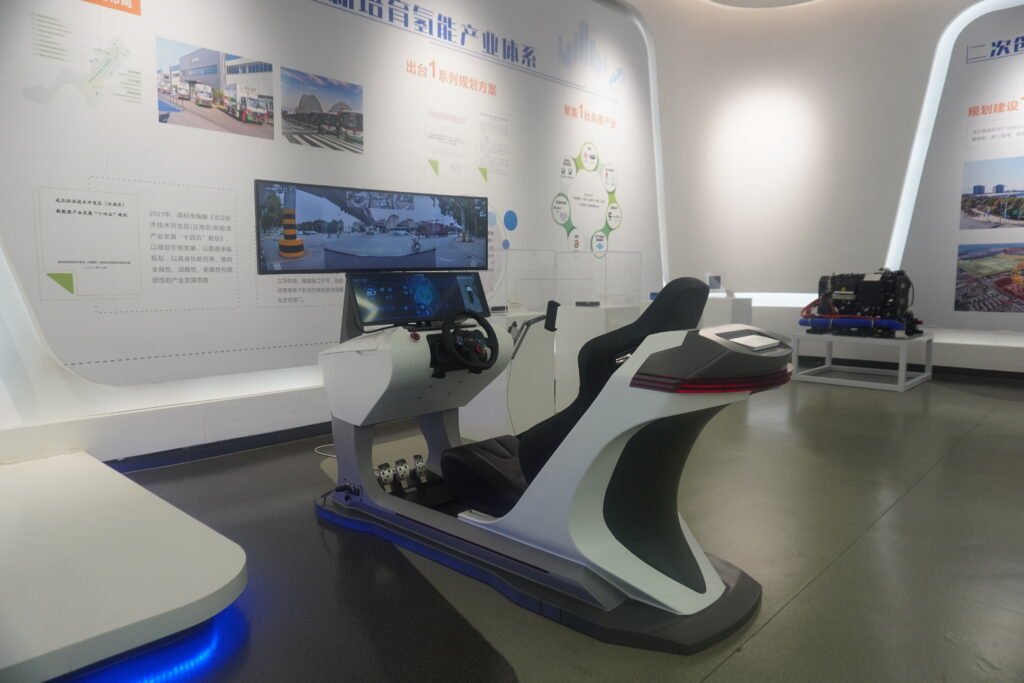
Operational safety within the test zone is ensured through a remote management system. More than 1,000 autonomous vehicles distributed across the city are monitored and coordinated 24/7. These vehicles provide taxi services, offering free or commercial rides to the public while also collecting data and testing their systems in real-world environments. Expert teams at the operations center track vehicle sensor data and locations in real time; in emergencies, they can intervene within milliseconds via a 5.5G (5G-A) infrastructure. The system can remotely take control of vehicles or issue direct instructions when unexpected obstacles, sensor malfunctions, or complex traffic scenarios arise. This comprehensive remote intervention capacity not only enhances test safety but also contributes to the establishment of reliability standards for future fully autonomous driving systems.
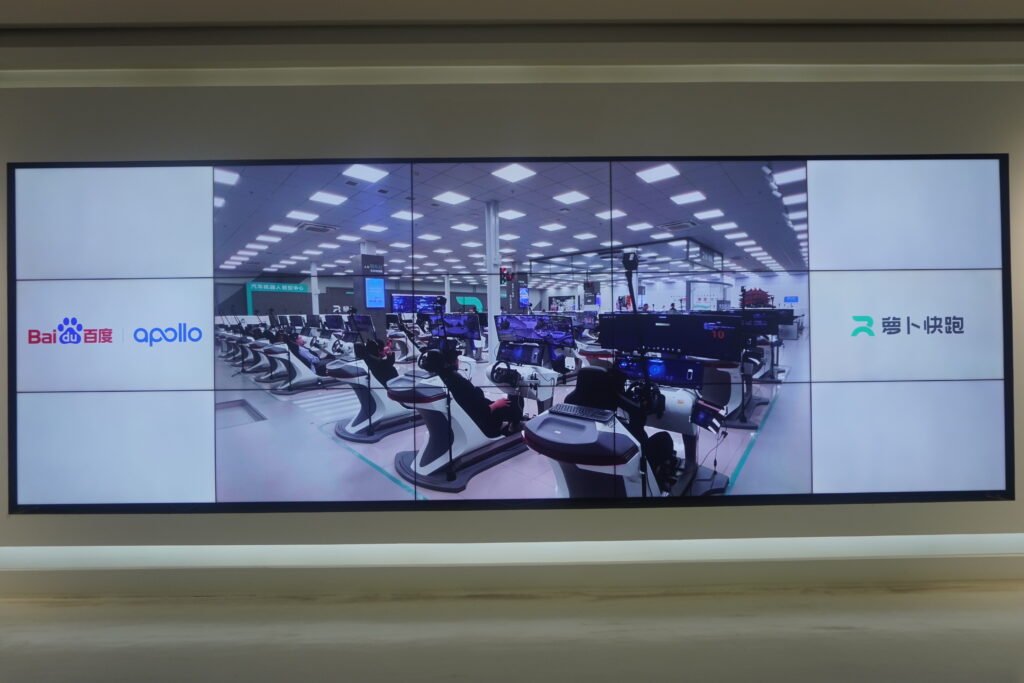
Wuhan’s test zone stands out for its scale and investment. From its earliest phases, it has attracted billions of RMB in investment, evolving into a vast open-air laboratory that encompasses urban and intercity road networks, viaducts, tunnels, and a closed racetrack. The zone enables real-world validation of a wide range of technologies—from autonomous driving algorithms and V2X communication systems to smart traffic management and robotaxi services. It also serves as a platform for innovation and collaboration among vehicle manufacturers, technology firms, and research institutes, accelerating the commercialization of these technologies.
Public-Private Partnership
The management model of the test zone is based on public-private collaboration. Infrastructure (road sensors, 5G networks, etc.) is funded by public resources, while automobile manufacturers and technology companies pay usage fees for testing. The zone also provides consulting and data analysis services for R&D projects, fostering technological progress while ensuring its own financial sustainability.
In recent years, significant progress has been achieved in Level 4 autonomous driving technologies. As of 2023, the number of fully autonomous vehicles authorized for testing exceeded 500, with a total driving distance surpassing 2 million kilometers. The robotaxi project, conducted with companies such as Baidu Apollo and DeepRoute, has transported more than 100,000 passengers across a network of over 300 stops. “Green wave” transit corridors have been introduced for smart buses and emergency vehicles; thanks to V2X technology, emergency response travel times have been reduced by 40%. With the launch of the “Smart City Brain” project in 2024, 5G-A infrastructure is being rapidly deployed, enabling real-time data sharing between vehicles and traffic lights, reducing waiting times at intersections by 20%.
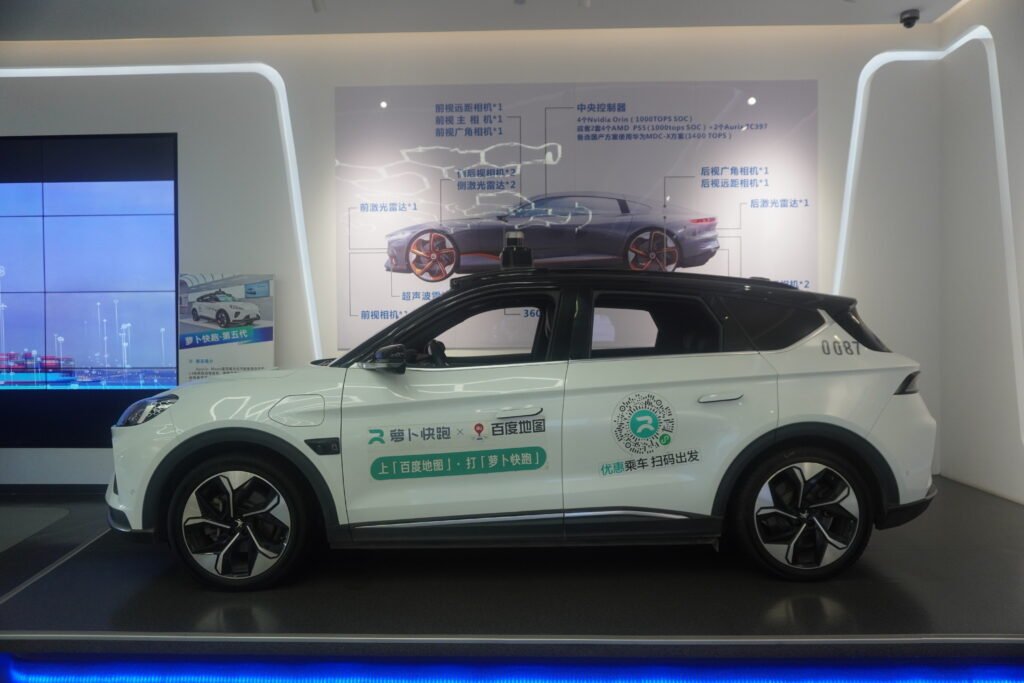
Looking ahead, the Wuhan Test Zone is poised to evolve beyond a testing ground into a strategic innovation hub at the center of China’s smart transportation and autonomous vehicle ecosystem. The data collected and standards developed here inform national policies and regulations while also giving China a stronger voice on the global stage. At the same time, as a living laboratory for the integration of smart cities and intelligent transportation, the zone delivers innovative solutions in traffic management, urban planning, and energy efficiency. In this way, Wuhan plays a pioneering role in China’s digital transformation and makes a direct contribution to the country’s technological independence.

